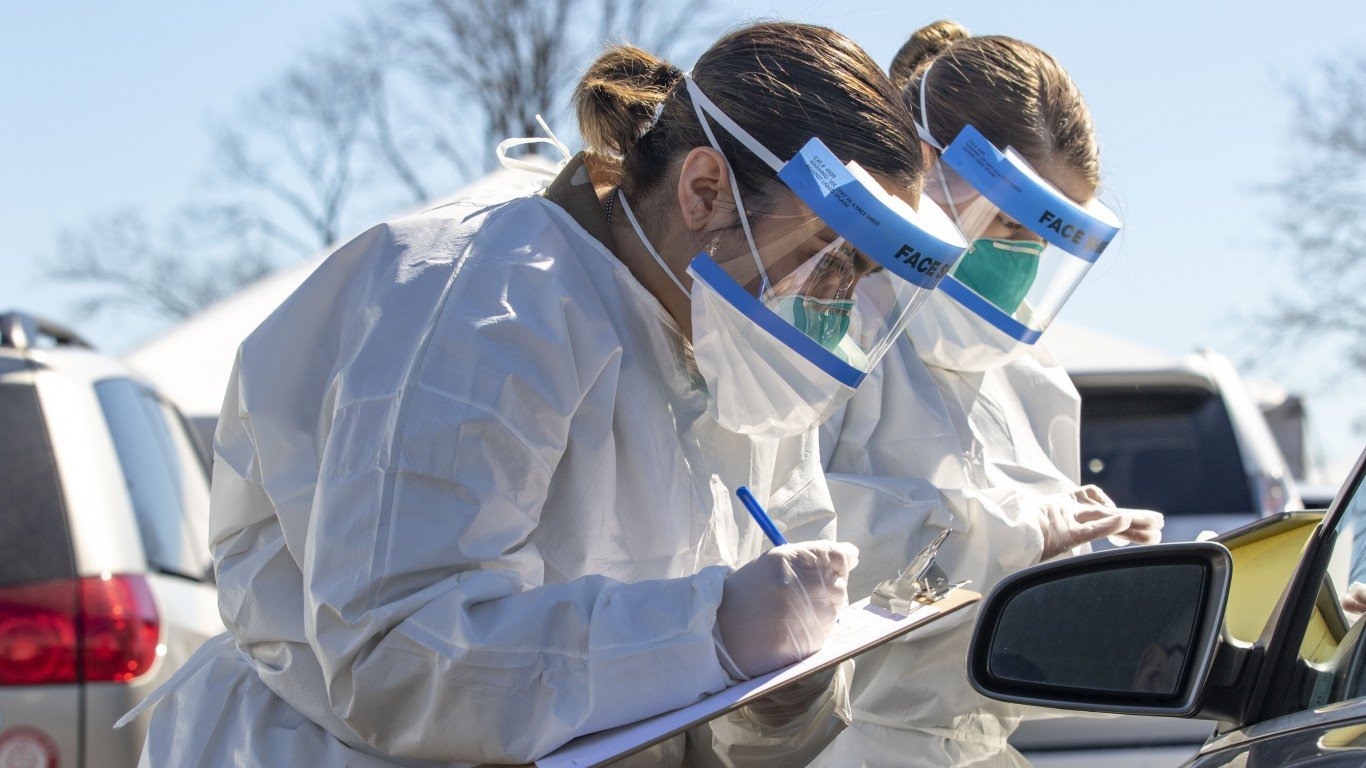

Co-Diagnostics Inc. (NASDAQ: CODX) traded for less than $1.00 late last year. Since then it has gone on a roller-coaster ride. The stock price hit $21.75 recently and then collapsed to $7.50.
Co-Diagnostics is on many shortlists of companies with partial medical solutions to slow the coronavirus outbreak. Most other companies are pharmaceutical giants that have potential solutions to test for infection or to provide vaccinations. These include GlaxoSmithKline PLC (NYSE: GSK) and AbbVie Inc. (NYSE: ABBV), as well as Kimberly-Clark Corp. (NYSE: KMB).
Co-Diagnostics calls itself a molecular diagnostics company. It has a niche. It has a likely solution for COVID-19 tests.
Coronavirus testing has become essential to track the spread of the disease. It is important to identify those who are infected but show no symptoms.
Pharma Winners During the COVID-19 Pandemic
Co-Diagnostic’s claim to fame is that it has a test to screen for the infection. It is the first American company to get approval to sell its products in the European Union. It is well on its way to getting approval in the United States as well.
The company recently disclosed that:
A recent FDA policy change aimed at expediting the availability of COVID-19 diagnostics has allowed the Company to expand domestic sales of its test immediately. Co-Diagnostics’ COVID-19 polymerase chain reaction (PCR) test can yield results in under two hours, and successfully passed the clinical evaluation as requested in the policy change, showing sensitivity of 100% and specificity of 100% in detecting SARS-CoV-2, the virus which causes COVID-19, without demonstrating any cross-reactivity with other coronaviruses.
The official name of this diagnostics test product is the Logix Smart COVID-19 Test. The news triggered a Buy rating for the stock and a higher price target from brokerage H.C. Wainwright.
Co-Diagnostic’s Stock Shows Rocky Past
The company’s stock traded near $1 for much of 2019. Financially, the company was a wreck.
It had no revenue in 2016. Revenue was only $8,000 in 2017 and $40,000 in 2018. For the trailing 12 months, it rose to $117,000. The company lost over $6 million in each of the past three years. Negative net cash from operations over the past four years has been $13 million.
The biggest single blow came when the company disclosed that it had a “going concern” problem. It admitted, in essence, that it might not be in business without additional capital.
When it filed its third-quarter results last year, the Form 10-Q said:
Our continuation as a going concern is dependent on our ability to generate sufficient income and cash flow to meet our obligations on a timely basis and to obtain additional financing as may be required. The Company is actively seeking options to obtain additional capital and financing.
Who Runs Co-Diagnostics?
The board has five members. CEO Dwight H. Egan has been an officer and director since April 2013. He also has been in the private investment business since 1999.
Eugene Durenard is the founder and CEO of Hyperbolic Holdings, a Swiss-based holding, management consulting and investment advisory company specializing in health care.
The newest board member joined last year. Edward L. Murphy serves as a senior vice president and a partner of Dover Investments, a private investment firm.
Richard S. Serbin, who joined the board of directors in May 2017, is a consultant in the health care industry.
James Nelson is the retired board chair and CEO of Sunworks, a commercial, agriculture and residential solar integrator.
The directors other than Egan are considered independent and were paid $55,000 in 2018. Egan made $463,000 last year.
The largest shareholders not on the board are Reagents, which holds 10.2% of the shares, and Legends Capital, which has a stake of 7.4%.
Was Co-Diagnostics Lucky or Good?
How did Co-Diagnostics stock do so well? It appears to have done a good job making serviceable technology. However, it took a global disaster to create a market.
Essential Tips for Investing: Sponsored
A financial advisor can help you understand the advantages and disadvantages of investment properties. Finding a qualified financial advisor doesn’t have to be hard. SmartAsset’s free tool matches you with up to three financial advisors who serve your area, and you can interview your advisor matches at no cost to decide which one is right for you. If you’re ready to find an advisor who can help you achieve your financial goals, get started now.
Investing in real estate can diversify your portfolio. But expanding your horizons may add additional costs. If you’re an investor looking to minimize expenses, consider checking out online brokerages. They often offer low investment fees, helping you maximize your profit.
Thank you for reading! Have some feedback for us?
Contact the 24/7 Wall St. editorial team.
 24/7 Wall St.
24/7 Wall St.


